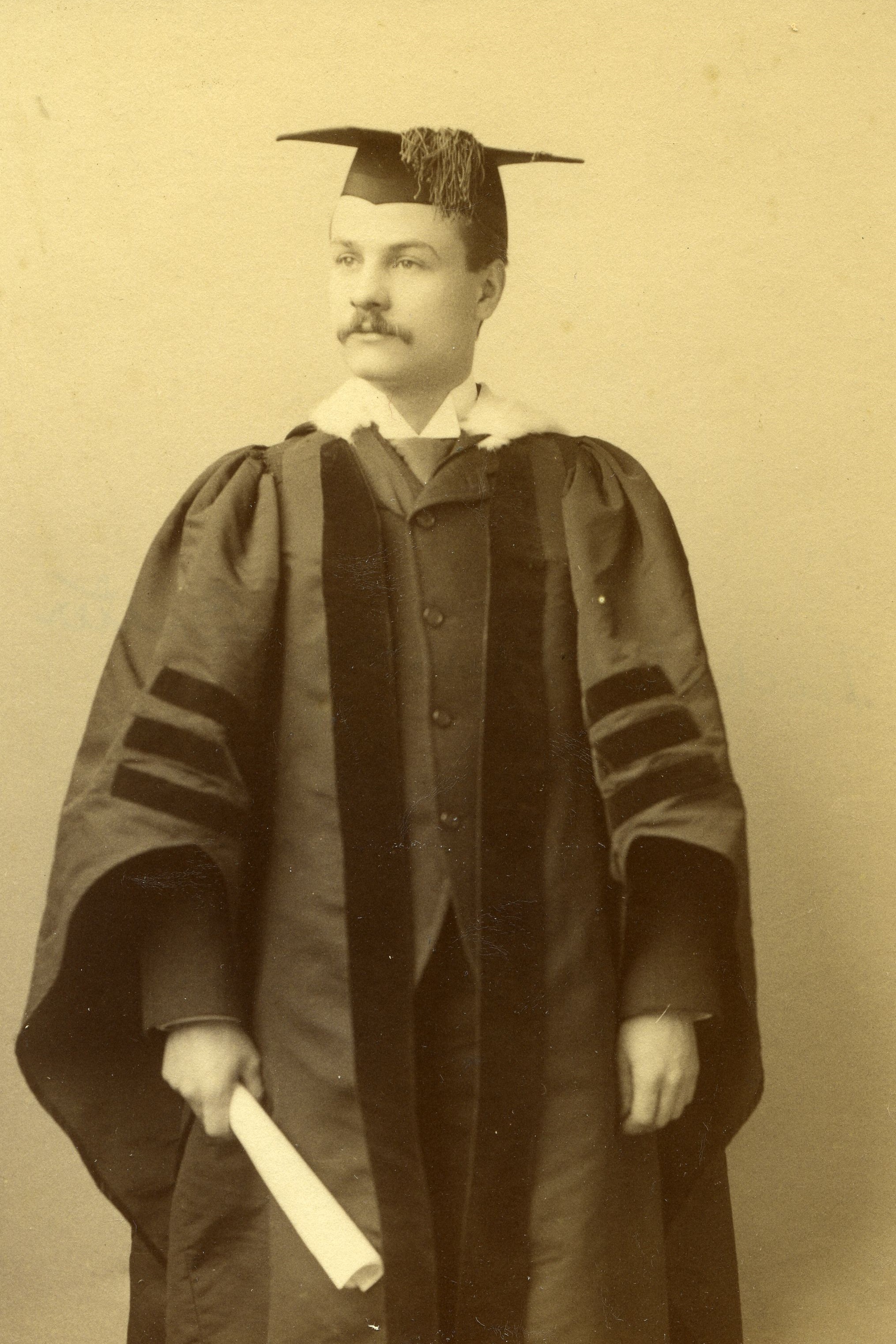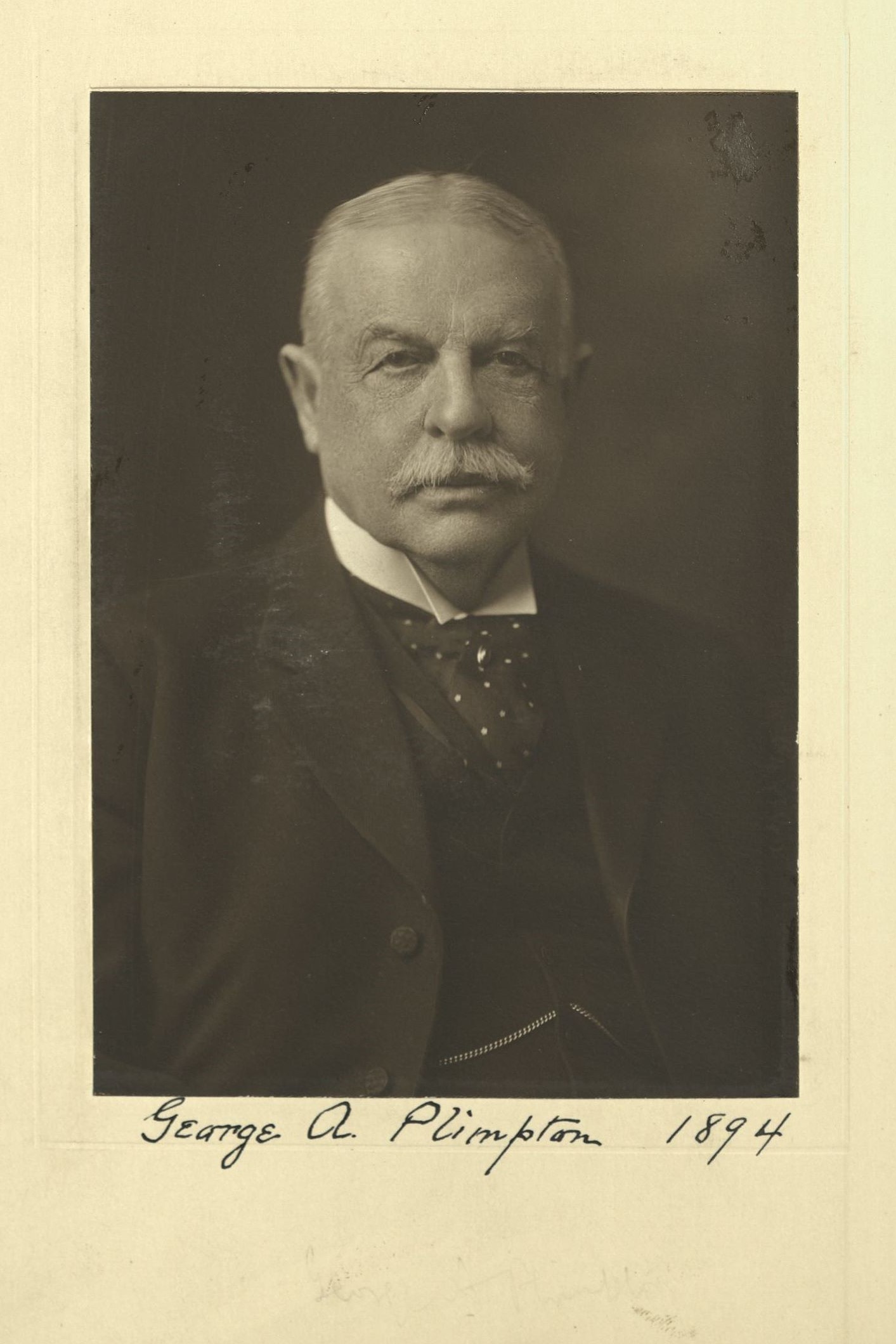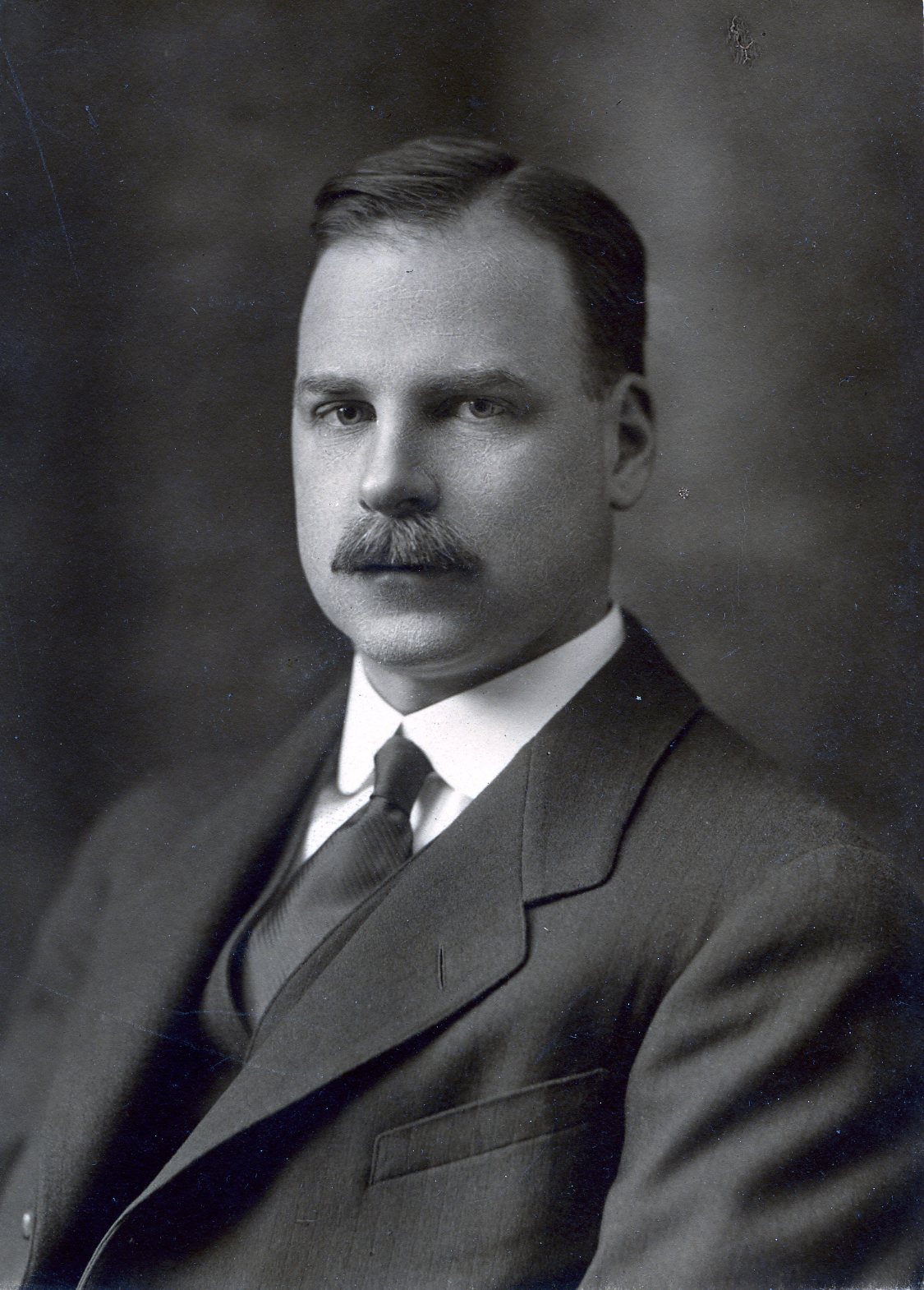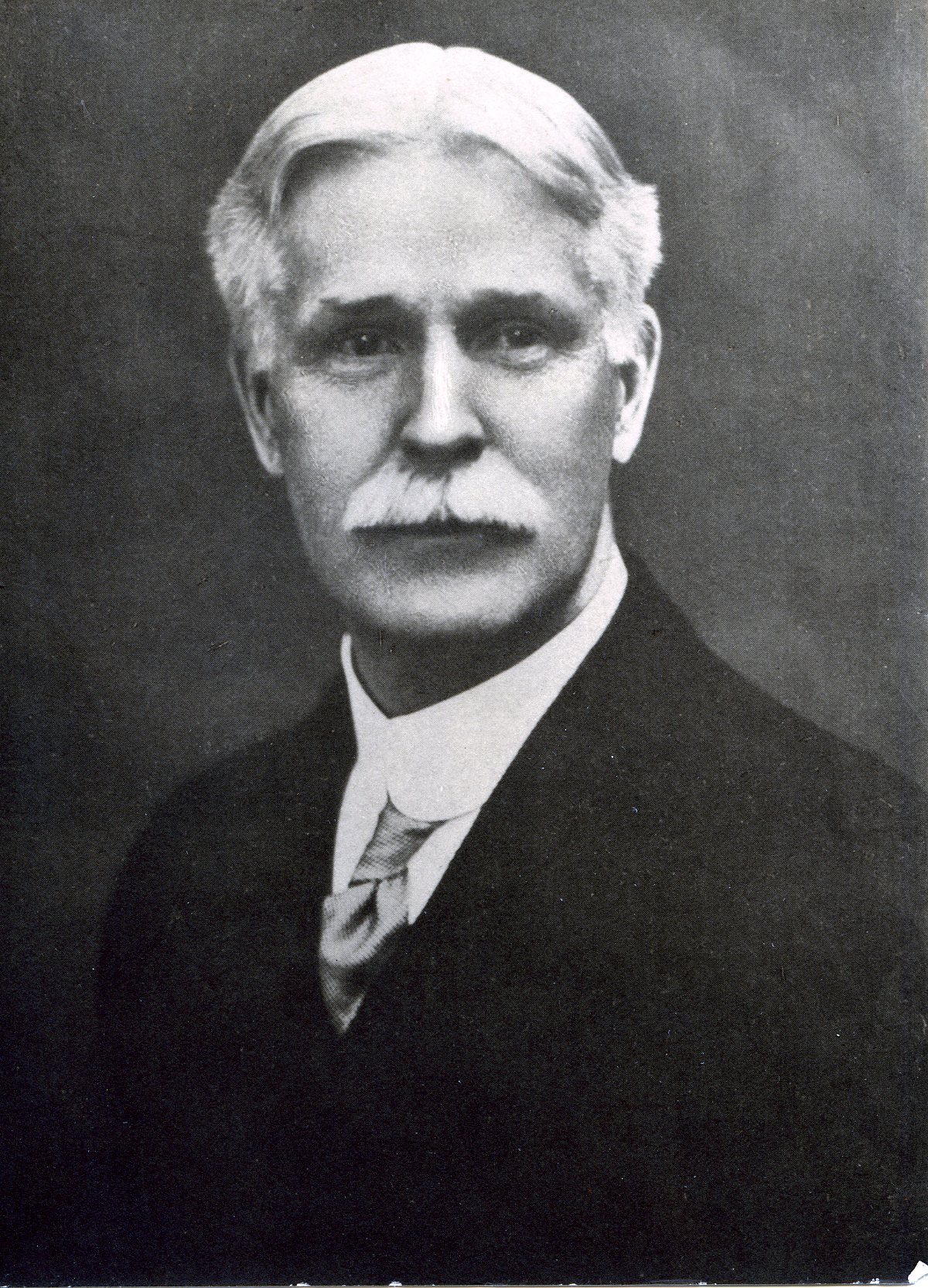Member Directory,
1847 - 1922
Gonzalez Lodge
Professor of Latin
Centurion, 1905–1942
George A. Plimpton and James R. Wheeler
Port Littleton, Pennsylvania
New Canaan, Connecticut
Age forty-one

Century Memorial
Scion of a family in which the love of letters was hereditary, Gonzalez Lodge studied at Johns Hopkins in the days of its eoan splendor under President [Daniel C.] Gilman, winning his A.B. in 1883 and his Ph.D. in 1886. In the brilliant group that set the feet of the young university on the road to immortality his special mentor was Basil Lanneau Gildersleeve, prince among American classical scholars, whose precepts and example fanned into a flame in his kindred soul the passion to understand and to impart to others with wide and exact knowledge the riches of his chosen field, the world’s heritage of Greek and Latin learning. This passion was to be an outstanding characteristic of all his after years, for, like Chaucer’s Clerk of Oxenford, “gladly wolde he lerne and gladly teche.” Two years of teaching Greek at Davidson College (one fruit of which was later an edition of Plato’s “Gorgias”) were followed by eleven at Bryn Mawr where by his humanistic interpretation of Latin authors he won the affectionate regard, not unmixed with awe, of scores of President Carey Thomas’s bright protégées. The ensuing twenty-nine years (he became Emeritus in 1929) were given with like success to Teachers College in Columbia University, during which he combined exposition of methodology in teaching with interpretation of the content of the Latin writers studied in secondary schools, emphasizing constantly his conviction (not shared, alas, by some leaders in education today) that control of the former could be effective only if based upon a thorough knowledge of the latter. He made these schools and indeed all students of Latin his debtors by his “Vocabulary of High School Latin,” a remarkable and fruitful attempt to determine the basic two thousand words of the language in the classical period. For him the good was always the enemy of the best. He preached and practised allegiance to the Vision of high excellence, and was thus equally intolerant of contented mediocrity and of unwarranted self-conceit. He often said that modern education in the humanities seemed to consist largely of trying to teach unteachables to unteachables; and, though this remark was usually accompanied by a quizzical smile, he could be, and not infrequently was, incisively caustic in his comments on poor work, whether in private or in public life. In fact, some of his admirers who sympathized with his frail physique and always delicate health, maintained that in himself he exemplified the Latin definition of an epigram:
Omne epigramma sit instar apis: sit aculeus illi,
Sint sua mella, sit et corporis exigui.
Three things must epigrams, like bees, have all:
A sting and honey and a body small.
He was, nevertheless, no cynic, but rather a genial realist; so that his students and his associates alike found him long-suffering and always helpful. Everyone recognized in him (to quote Chaucer again) “a verray parfit gentil knyght.”
His intellectual kinship and close association with Gildersleeve resulted in his masterly revision of the latter’s “Latin Grammar.” His additions involved the utilization of innumerable special studies of words and constructions as used by the several Latin authors and thus illuminated in multitudinous details the history of literary usage, but his monument “more enduring than bronze” is the great two-volume “Lexicon Plautinum,” a work so admirably arranged and so comprehensive in its inclusion of all significant contributions made by scholars to the constitution of the text of Plautus that it is indispensable to everyone who wishes to make a searching study of the ways in which the dramatist uses his remarkable vocabulary, and thus to gain control of colloquial Latin usage at the end of the Hannibalic War.
In 1907 he founded the Classical Weekly, and for six years served as its broad-minded and sagacious Editor-in-Chief. To the New York Classical Club, of which he was a beloved member from its first meeting in 1900 until his death a few days after he had completed his seventy-ninth year, he gave generously of his scholarship, counsel, and idealism. President [Nicholas Murray] Butler, in conferring upon him in 1929 the honorary degree of Doctor of Letters, used the following words:
His learning is but an adjunct to himself,
And where he is, his learning likewise is.
Geoffrey Parsons
1942 Century Memorials
Related Members
Member Directory Home-
 Nicholas Murray ButlerEducator/DiplomatCenturion, 1890–1947
Nicholas Murray ButlerEducator/DiplomatCenturion, 1890–1947 -
 Daniel C. GilmanPresident, Johns Hopkins UniversityCenturion, 1891–1908
Daniel C. GilmanPresident, Johns Hopkins UniversityCenturion, 1891–1908 -
 Nelson Glenn McCreaProfessor, Columbia UniversityCenturion, 1918–1944
Nelson Glenn McCreaProfessor, Columbia UniversityCenturion, 1918–1944 -
 George A. PlimptonPublisherCenturion, 1894–1936
George A. PlimptonPublisherCenturion, 1894–1936 -
 Theodore L. ShearExplorer/ExcavatorCenturion, 1914–1945
Theodore L. ShearExplorer/ExcavatorCenturion, 1914–1945 -
 James R. WheelerProfessor, Columbia CollegeCenturion, 1897–1918
James R. WheelerProfessor, Columbia CollegeCenturion, 1897–1918 -
 George Meason WhicherEducator/AuthorCenturion, 1915–1937
George Meason WhicherEducator/AuthorCenturion, 1915–1937




